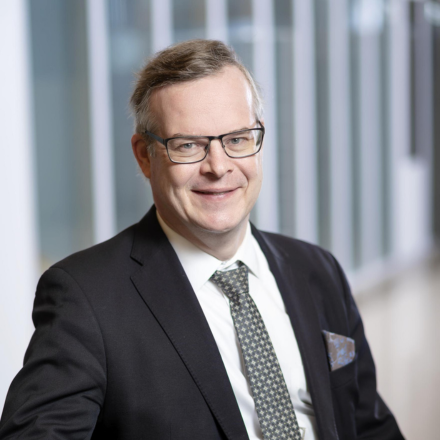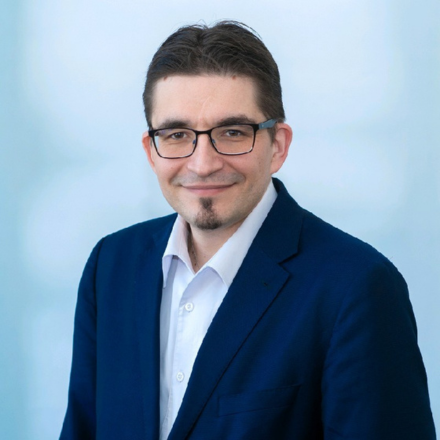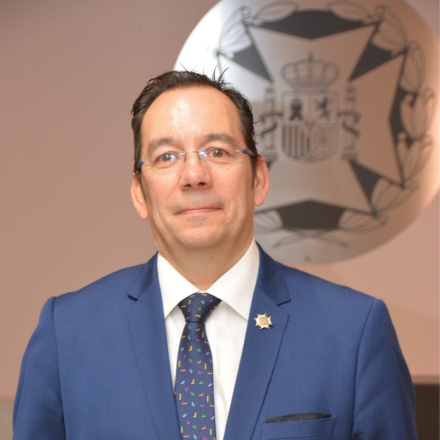Engaging Patients for Patient Safety: Educating and Reporting Medication Harm in Hospitals
18 September 2023
Overview
The European Health Management Association (EHMA), the European Association of Hospital Pharmacists (EAHP) and the European Patient Safety Foundation (EUPSF), organised a joint webinar on ‘Engaging Patients for Patient Safety: Educating and Reporting Medication Harm in Hospitals’, which took place on Monday, 18 September 2023.
WHO World Patient Safety Day, observed annually on 17 September, aims to raise global awareness about patient safety and calls for solidarity and united action by all countries and international partners to reduce harm to patients. Patient and family engagement is one of the main strategies to eliminate avoidable harm in healthcare and ‘Engaging Patients for Patient Safety’ has been the defining theme for World Patient Safety Day 2023.
Access to safe, quality, and affordable medicines and their correct administration and use is critical for patient treatment and satisfaction. However, harm from medication treatment, including that resulting from a medicine shortage, in hospitals is common. 80 million people in Europe report experiencing a serious medication error during hospitalisation. With the outcomes of enhanced pharmacovigilance practices on medication safety practices in hospitals unclear and widespread deployment and adoption of digitalisation that can contribute to medication safety lagging, error reporting remains one of the most effective strategies to improve patient safety from medication harm.
The 72nd World Health Assembly affirms that informed patients and carers could support the elimination of avoidable harm during care delivery. However, in many cases, patients nor their families are unaware of what systems are available to prevent medication errors nor aware of how to report an error. Therefore, awareness, access, and use of patient-centred, user-friendly, reporting systems, will strengthen the evidence base that medication errors are not an unfortunate occupational hazard in healthcare delivery.
This webinar raised awareness of how to empower patients to objectively report harm from a medication error and discussed the advantage of empowering patients to improve medication safety in hospitals with reference to the four domains of the WHO’s Global Patient Safety Challenge – patients and the public, health care professionals, medicines and systems and practices of medication.
The event raised awareness of what systems are available to prevent medication errors in hospitals and explored how healthcare professionals, including health managers, and policymakers can use reports to improve medication management practices and prevent harm from medication errors.
SPEAKERS

Prof Dr Lasse Lehtonen, MD
Prof Dr Lasse Lehtonen, MD
Prof Dr Lasse Lehtonen, MD is Professor of Health Law at the University of Helsinki and Director of Diagnostic services at the Helsinki University Hospital (HUS). Prior to this role, he was Administrative Chief Physician in the same hospital. He holds a Master in Law and a PhD in immunology from the University of Turku (Finland). He is Specialist in Clinical Pharmacology and Pharmacotherapy. Prof Lehtonen worked as an expert in several legislative projects of the Ministry of Social Affairs and Health, in various parliamentary committees, and in the European Commission.

Prof Reinhard Strametz
Prof Reinhard Strametz
Prof Reinhard Strametz, is a specialist in anaesthesiology specialised in quality management, clinical risk management and emergency medicine and economist. He was Medical Director of the Quality Management Unit at the Frankfurt University Hospital. He is Professor of Patient Safety at Wiesbaden Business School, Head of Wiesbaden Institute for Healthcare Economics and Patient Safety (WiHelP) and Vice Chair of the European Researchers’ Network Working von Second Victims (ERNST Group).

Mr Denis Herbaux
Mr Denis Herbaux
Mr Denis Herbaux is the CEO of the Platform for Continuous Improvement of Quality of Care and Patient Safety (PAQS) and Professor of Health Economics at Université Libre de Bruxelles. He has been recently appointed as an expert for the International Society for Quality in Health Care (ISQua). Mr Herbaux holds the position of Research Associate at the Institute of Health and Society (UCLouvain) and Senior Fellow at the Institute for Interdisciplinary Innovation in healthcare (i3h). He is a Board Member of the European Patient Safety Foundation (EUPSF) and Chief Operating Officer at Santhea, a federation of health care institutions in Wallonia and Brussels.

Dr Jose Luis Cobos Serrano
Dr Jose Luis Cobos Serrano
Dr Jose Luis Cobos Serrano serves as Vice President of the Spanish General Council of Nursing and Board Member of the International Council of Nurses. He began his career as nurse in Madrid. He held the position of Chief of the Department of Continuing Education and Quality at the Gregorio Marañón Hospital in Madrid, and Deputy Director of the Institute of Research for Health Quality. Dr Cobos Serrano holds a degree in Nursing and a master’s in Research in Care from the Complutense University of Madrid.

Ms Anna Prokůpková
Ms Anna Prokůpková
Anna Prokůpková is an Advisor for the Greens/EFA Group at the European Parliament (EP) on health policy, building and representing the party’s interests in technical negotiations on legislation and non-legislative files, including the European Health Union, the pharmaceutical legislation and the European Health Data Space. Before joining the Greens in January 2021, Anna led advocacy activities of the Association of European Cancer Leagues (ECL), a European umbrella organisation of national cancer charities.
Anna was born and raised in Prague, has a Bachelor degree in International Area Studies from the Charles University in Prague (Czech Republic) and a Master degree in European Studies from KU Leuven (Belgium). Anna’s first Brussels job was at Covington & Burling LLP, where she worked as a paralegal in the Life Sciences team and became deeply involved in the EU’s health and environment policy.
This webinar is supported by an educational grant from BD

What our Members say
I have been active in EHMA since the first years of the '90s and I have seen its evolution from a small association of members interested in sharing knowledge on health management practices to the current status of reference and advisory key player for EU, health systems and organisations, stakeholders associations, industry and universities. EHMA is now a unique knowledge hub, policy advisor, community of practice and network of best in class organisations involved in health policy and management. A place where health managers can build their competences, policy-makers and stakeholder associations envision how to implement and sustain change through health management, industry leaders understand how to engage more effectively with health organisations and systems. The right place to nurture and grow health management capabilities and capacity for every stakeholder of health systems.
Prof. Federico Lega, University of Milan, Italy
Health management has a crucial function in shaping public health and health system challenges. The Medical University of Varna, Bulgaria had success in collaborating with EHMA on EU-funded projects that has resourced us to create new health management competencies for the future workforce. In addition to all classical definitions, health management is a science dealing with individuals, groups, and society at large. It is an art contributing to the beauty of our lives and an interactive communication process at all levels of institutions and human energy. I have also had the pleasure to chair the South Eastern European Special Interest Group which gives members a space to discuss and tools to address how health systems are managed in our regions.
Prof. Todorka Kostadinova, Medical University of Varna, Bulgaria
I enjoy the high level of interaction and engagement in EHMA’s activities, in particular during the annual conference where the panel discussions are rich and well prepared. As a hospital manager and professor of health management, EHMA motivates and inspires me to be creative. You go back home feeling energised from seeing old friends and making new connections, as well as being convinced of serving as EHMA’s ambassador. It’s a strong feeling of interdisciplinary engagement, but it also feels like being part of family-like community.
Prof. Sandra C. Buttigieg, University of Malta, Malta
EHMA is a pre-eminent organisation for everyone working in planning, managing and delivering health services across Europe. As a long standing member of EHMA I have always been impressed by the vibrant community of managers, researchers and academics it has created and by the many opportunities for sharing knowledge and funding opportunities it has brought to its members. Its international scope is impressive and its impact is often felt in management and research across European and national health systems.
Prof. Axel Kaehne, Edge Hill University, UK
Health workforce has become more essential in operating, managing and maintaining health systems lately, particularly in crisis and emergency situations. European healthcare professions and the workforce need to be high on the agenda of managers and decision makers. The Health Services Management Training Centre, Semmelweis University in Hungary is a longstanding EHMA member, because it connects us with collaborators and experts, with whom we can have complex debates, from whom we can learn and at the end find solutions in various challenging fields of healthcare management.
Dr Eszter Kovács, Health Services Management Training Centre, Semmelweis University, Hungary
As a hospital administrator and health management professor, I see on a daily basis that the healthcare challenges require talented and skilled managers to transform it. the EHMA membership has been beneficial to bring healthcare management research and education to the demanding healthcare services world, promoting healthcare management competencies and knowledge creation.
Dr Alexandre Lourenco, APAH - Association of Portuguese Hospital Managers, Portugal
Many healthcare systems in Europe and beyond are facing similar challenges which require innovative and creative solutions. EHMA’s annual conference, webinars, Programme Directors’ group and other activities and resources provide incredible opportunities for networking, connecting and sharing experiences. A distinct feature of EHMA is the diversity of members with representation from many countries, sectors and different communities of practice – academic, policy-makers, practitioners, managers, leaders and students. The annual conference is a highlight in the calendar year, offering a friendly, fun and learningful environment for emerging and established members to engage, collaborate and meet up with old and new friends. I am proud to be a member of the EHMA Board.
Prof. Ann Mahon, University of Manchester, UK
Society evolution, pandemics and ageing modify health needs. So, health policies and services are to change dramatically. EHMA, through webinars, workshops and annual conference provides an excellent insight to a professional changing world, favouring closeness to management innovation and the protagonists of these changes. As a primary care services’ manager, participating in EHMA activities is really worth it and allows to involve oneself in the innovation processes.
Dr Antoni Peris Grao, Consorci Castelldefels Agents de Salut (CASAP), Spain